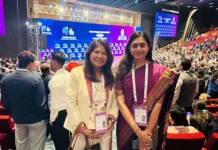PARSI PARLO, Apr 17: Sports Authority of Arunachal (SAA) Chairman Bamang Tago expressed concern over “commercialization of indigenous festivals” and appealed to organizers to maintain the traditional sanctity of such festivals.
Attending the Longte festival celebration here in Kurung Kumey district on Monday, Tago, who was accompanied by legislator Paknga Bage, said traditional festivals should be easily accessible and participated in freely by villagers, irrespective of their financial or official status.
“Commercialization of festivals in the garb of expensive food stalls, gambling, and monetary expectations from invited dignitaries these days have robbed the charm of such celebrations,” Tago said, adding that such things do not augur well for the indigenous communities.
Tago, however, lauded the people for keeping alive the spirit of Longte by traditionally celebrating it every year with genuine enthusiasm.
He also highlighted the initiatives of the state government, particularly in the field of sports and youth affairs.
He said the SAA, backed by the state government, is striving hard to reach out to rural youths and take them under its umbrella for development of games and sports.
“Our youths have immense potential but are underexposed and underdeveloped. We in the SAA and the department are taking up measures to explore rural talents and turn them into national and international level sportspersons,” he said.
Tago also urged the people to change their mindset about development by “shunning individual profit and opting for common development of the society.” He appealed to all to “see the bigger picture of development” and stop complaining on various forums for individual and vested interests.
“It’s not that the central and state governments are not concerned about us. It is because of our own drawbacks that our area is yet to develop at par with other parts of the state. If we change, our region will change and we can leave a better place for our coming generations,” Tago said.
He expressed optimism that his message would help bring about change.

